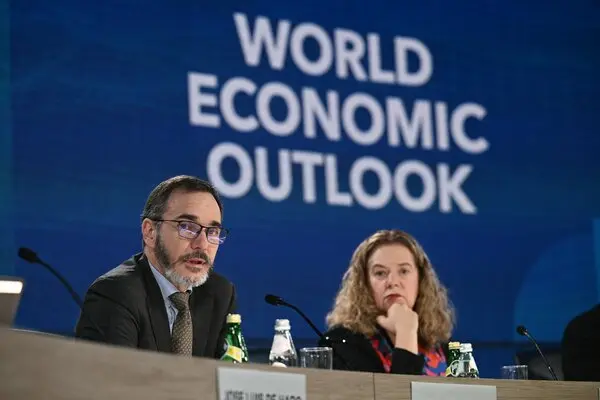The International Monetary Fund (IMF) has issued a fresh warning that the world is entering a divided inflation cycle, where some regions continue to face stubborn price pressures while others experience a slowdown driven by weak demand and shifting trade patterns.
In its latest global economic outlook, the IMF highlights a “mixed and uneven” picture: advanced economies such as the United States and parts of Europe are still grappling with elevated core inflation, while several emerging markets — particularly in Asia and Africa — are seeing price stabilization as consumption slows.
Inflation Remains Stubborn in Advanced Economies
The report attributes persistent inflation in the West to tight labor markets, supply chain reconfigurations, and continued fiscal spending. Central banks, though easing some monetary policies, have struggled to bring inflation down to the 2% target range.
In the United States, consumer prices have been buoyed by robust employment figures and rising energy costs, while in the Eurozone, food and housing costs continue to weigh heavily on household budgets.
“The disinflation process has stalled in several major economies,” the IMF noted, warning that premature policy easing could reignite price volatility.
Emerging Markets See Cooling Prices
Conversely, many developing nations are witnessing a slowdown in inflation as domestic demand softens and governments adopt stricter fiscal controls. In regions such as Sub-Saharan Africa, currency stabilization and improved harvests have helped temper food prices, though vulnerabilities remain due to global energy costs and import dependencies.
Asia’s largest economies, including China and India, have shown contrasting trends: while China faces mild deflationary pressures amid weaker consumer spending, India’s inflation remains moderate but manageable, supported by strong agricultural output and government subsidies.
Tariffs and Trade Fragmentation Add Pressure
The IMF also cautions that the rise of protectionist trade measures and tariffs — particularly between the world’s major economies — could fuel a new wave of price distortions.
Increased tariffs on semiconductors, steel, and green technology components have created bottlenecks that ripple through global supply chains, raising costs for manufacturers and consumers alike.
“Protectionism is inflationary by design,” the report warned. “Each layer of tariff adds complexity and inefficiency to the global value chain.”
Balancing Growth and Stability
Despite mixed signals, the IMF maintains that global growth is holding steady, driven by investment in technology, green infrastructure, and energy transition. However, policymakers face a delicate balancing act: supporting growth while preventing inflation from becoming entrenched.
The Fund has urged governments to maintain targeted fiscal support rather than broad-based subsidies, strengthen food and energy security, and collaborate to avoid a “tariff spiral” that could weaken the post-pandemic recovery.
A Call for Global Coordination
As the global economy adjusts to shifting alliances, climate costs, and digital transformation, the IMF’s message is clear — inflation is no longer a uniform challenge but a regional one.
The path ahead will depend on how nations balance self-interest with cooperation in an increasingly fragmented economic landscape.
